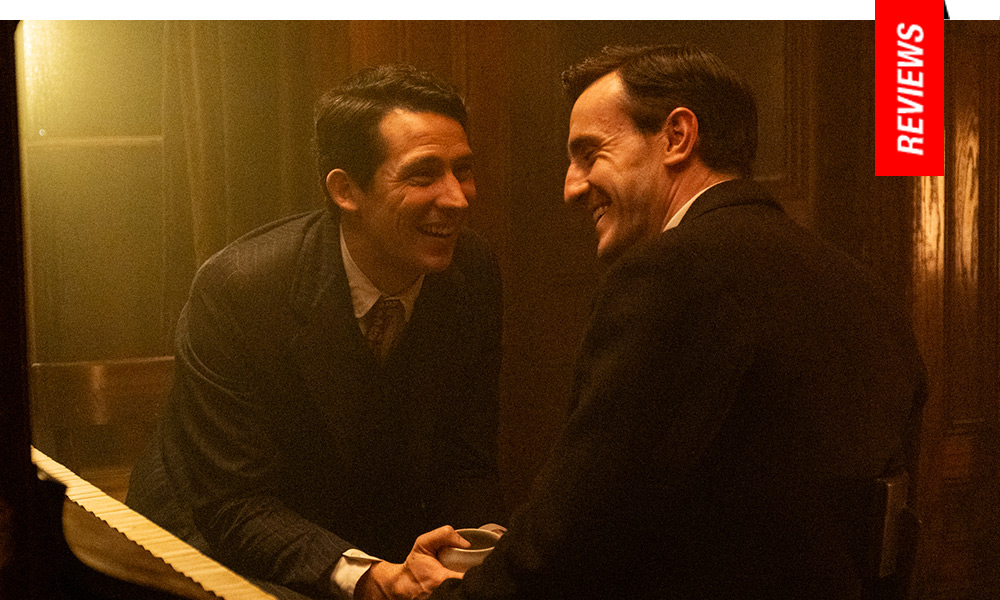One Sings, the Other Doesn’t: Hermanus Plays a Tune for the Broken Hearted
Lionel (Paul Mescal) escapes his family farm in 1917 Kentucky thanks to his formidable musical gifts, offered a position at a music conservatory where he meets David (Josh O’Connor), a composer with a photographic memory and a passion for cataloguing songs. Romance blossoms between them until David is drafted, and Paul, who cannot see without his glasses, returns to farm life. Having survived the war, David invites Lionel to assist him on a tour of the countryside, commissioned by a university he’s been hired at in Maine. Together, they visit small towns, villages, and encampments recording local folk tunes. However, David has returned from war somewhat transformed, and their tour ends on a desolate note, their relationship dissolved. Years pass, finding Lionel in Rome singing for a prestigious choir, but his restlessness drives him to Oxford and eventually back home to Kentucky where he finally decides to find David once again. Except things have changed more than he anticipated.
Mescal and O’Connor, both who have recently starred in high profile gay or gay adjacent films (All of Us Strangers and Challengers, respectively), share an organic, easygoing chemistry, and their initial introduction leads them down a path which seems as if it’s the most logical choice in the world. Their romantic and creative interests perfectly align, and for a while, they share an intoxicating idyll while at the conservatory. WWI disrupts everything, and when David returns, reluctant to speak of his experiences in Europe, he’s altered in a way Lionel doesn’t know how to comprehend. Their final exchange before parting ways after their song recording tour remains naggingly ambiguous since neither of them quite know how to articulate their thoughts regarding a future.
As years pass without a word from David, Lionel fosters other relationships, with men and women, but he’s guarded and aloof, abruptly breaking things off with his partners whenever commitment seem imminent. Lionel’s yearning has come to define him, and despite his success, he’s adrift, clearly waiting. But this rigid internalization also constricts the film’s energy in an emotional straitjacket, which doesn’t begin to loosen until the third act. We finally learn of David’s fate, which sets pulses running again thanks to a scene with his wife, played by Hadley Robinson. Chris Cooper, whose voiceover narration begins the film, appears as Lionel in 1980, Boston, where an unexpected transmission brings everything full circle.
There’s an elegant confidence to Hermanus’ pacing, which works best in DP Alexander Dynan’s wilderness moments, forcing contemplation. In several ways, The History of Sound feels like the Merchant Ivory version of Brokeback Mountain (2005), while Mona Fastvold’s The World to Come (2020) shares similar narrative tics. A conversation between Lionel and his fiancee Clarissa (Emma Canning) revolves around Orpheus and Eurydice, which provides subtext for David and Lionel. Life lessons cannot be dictated by mythological archetypes—-and Lionel realizes, too late, that he should have turned around to offer a helping hand to David. Like Jim Croce, who so famously confirmed what to do when one can’t find the right words, the film reiterates the sentiment “I’ll have to say ‘I love you’ in a song.
Reviewed on May 21st at the 2025 Cannes Film Festival (78th edition) – Competition. 127 Mins.
★★★/☆☆☆☆☆
